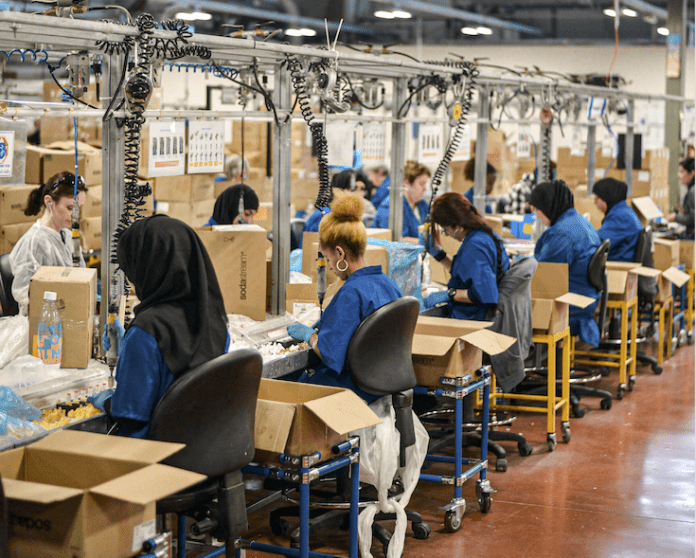The Selangor administration is taking proactive steps to support local manufacturers by leveraging major free trade agreements, particularly the Regional Comprehensive Economic Partnership (RCEP), to boost exports in response to the current national trade slowdown.
Menteri Besar Dato’ Seri Amirudin Shari addressed the crucial role that Selangor plays in the national economy by noting that the state accounts for a significant 80 percent of the country’s exports in the electrical and electronics (E&E) manufacturing sector.
“We will make use of the existing free trade agreements that were signed in 2020 and came into effect in 2022 to increase opportunities for our exporters to trade their goods among the region,” he said in reference to the RCEP.
Amirudin said this during the state legislative assembly sitting today in response to a question from state Opposition leader Datuk Seri Mohamed Azmin Ali on the Selangor administration’s proactive approach to increase exports in light of Malaysia’s sluggish external trade.
Azmin then continued to urge Amirudin over whether the state government would make use of the preferential certificate of origin (PCO) to better facilitate Malaysia’s exports to China under the RCEP.
https://googleads.g.doubleclick.net/pagead/ads?client=ca-pub-4925600975540401&output=html&h=280&adk=79595866&adf=638325073&pi=t.aa~a.1654364369~i.10~rp.4&w=720&fwrn=4&fwrnh=100&lmt=1699947231&num_ads=1&rafmt=1&armr=3&sem=mc&pwprc=3547895013&ad_type=text_image&format=720×280&url=https%3A%2F%2Fselangorjournal.my%2F2023%2F11%2Fselangor-to-boost-local-exports-with-rcep-amid-national-trade-slowdown-mb%2F&ea=0&fwr=0&pra=3&rh=180&rw=720&rpe=1&resp_fmts=3&wgl=1&fa=27&uach=WyJXaW5kb3dzIiwiMTAuMC4wIiwieDg2IiwiIiwiMTE5LjAuNjA0NS4xMjQiLG51bGwsMCxudWxsLCI2NCIsW1siR29vZ2xlIENocm9tZSIsIjExOS4wLjYwNDUuMTI0Il0sWyJDaHJvbWl1bSIsIjExOS4wLjYwNDUuMTI0Il0sWyJOb3Q_QV9CcmFuZCIsIjI0LjAuMC4wIl1dLDBd&dt=1699948038544&bpp=2&bdt=1593&idt=2&shv=r20231109&mjsv=m202311060101&ptt=9&saldr=aa&abxe=1&cookie=ID%3Da4064682a31658e3-2246e7aacae2008b%3AT%3D1691816231%3ART%3D1699948037%3AS%3DALNI_MbDnvFQ7UGvjceu2oSGSEEdXI6FGA&gpic=UID%3D00000c2b2040c853%3AT%3D1691816231%3ART%3D1699948037%3AS%3DALNI_MZSFLMdp1cXYI18YL6zF4jA6kExVA&prev_fmts=336×280%2C0x0%2C720x280%2C720x280&nras=3&correlator=1220475336025&frm=20&pv=1&ga_vid=63405673.1691814770&ga_sid=1699948038&ga_hid=737233568&ga_fc=1&u_tz=480&u_his=4&u_h=720&u_w=1280&u_ah=680&u_aw=1280&u_cd=24&u_sd=1.5&dmc=8&adx=112&ady=2240&biw=1263&bih=571&scr_x=0&scr_y=640&eid=44759875%2C44759926%2C31079606%2C44795922%2C44807461%2C31078297%2C31079382%2C44806140%2C44807764%2C44808148%2C44808285%2C31078663%2C31078665%2C31078668%2C31078670&oid=2&pvsid=2885847616331444&tmod=918806682&uas=3&nvt=1&ref=https%3A%2F%2Fselangorjournal.my%2F&fc=384&brdim=0%2C0%2C0%2C0%2C1280%2C0%2C1280%2C680%2C1280%2C571&vis=1&rsz=%7C%7Cs%7C&abl=NS&fu=128&bc=31&td=1&psd=W251bGwsbnVsbCxudWxsLDNd&nt=1&ifi=5&uci=a!5&btvi=4&fsb=1&dtd=32
In response, Amirudin stated that the state administration, through Invest Selangor Bhd, is actively assisting local firms in comprehending PCO requirements necessary for exporting goods to China.
The RCEP, which is the world’s biggest trade agreement, includes several Asia-Pacific nations, which aims to offer significant advantages, including market access to one-third of the global population, enabling competitive intra-regional sourcing of raw material, fostering supply chain integration within the region, improving transparency, facilitating trade, and promoting economic cooperation.
The countries involved include Australia, Brunei, Cambodia, China, Indonesia, Japan, South Korea, Laos, Malaysia, Myanmar, New Zealand, the Philippines, Singapore, Thailand, and Vietnam.
According to nonprofit public policy organisation Brookings Institution, Asean countries are expected to benefit greatly from the RCEP trade deal, potentially receiving up to US$19 billion annually by 2030.
The trade deal covers 30 per cent of the global gross domestic product (GDP) and 28 per cent of global trade.









